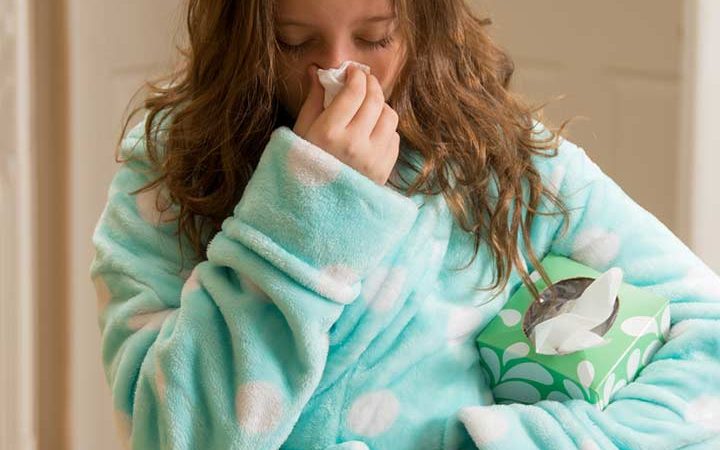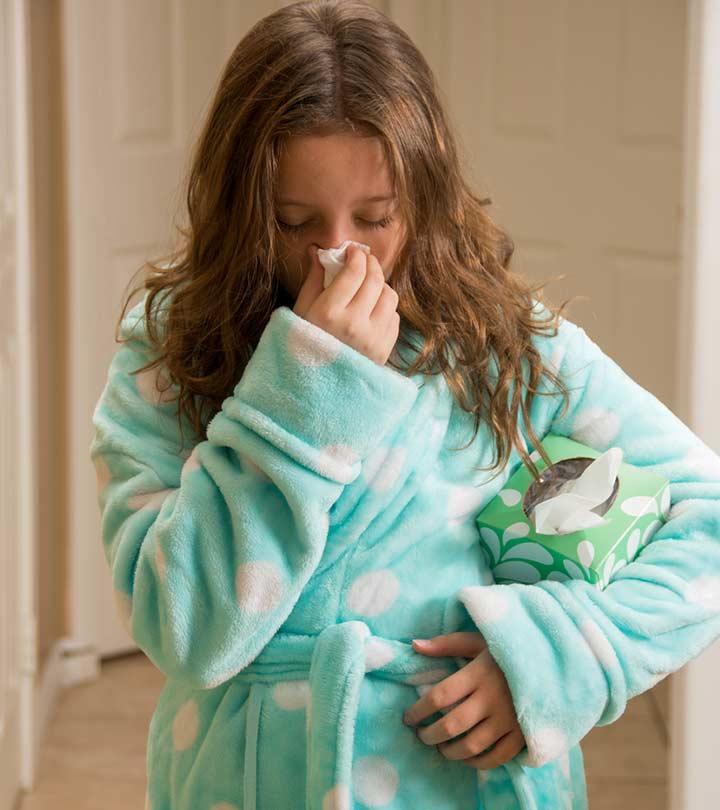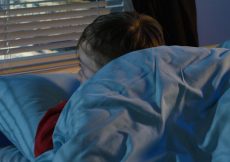A stuffy nose is normal among children when they have common flu or rhinitis. Contrary to what is believed, a stuffy nose is not because of the excess mucus blocking the nose but instead due to inflammation of blood vessels in the nose (1).
Although easily curable, a runny or stuffy nose hinders the day-to-day activities of a child. The blocked nose could make breathing difficult, which may make the child feel lethargic and irritable throughout the day. At times, persistent congestion may lead to ear canal and upper respiratory tract infections.
There are many ways to treat a stuffy nose in children. Read more about these measures and the causes behind them.
Causes Of Stuffy Nose In Children
A runny or stuffy nose in children could be due to various reasons. While some could have a benign cause, others may indicate underlying illnesses or conditions. These causes could include the following (2)(3).
- Vasomotor rhinitis (due to dilation of blood vessels in the nose)
- Small items stuck inside the nostril
- Benign sac-like growth in the nose (nasal polyps)
In rare cases, abnormality in the shape of the nasal septum could cause a blocked nose.
Symptoms Of Stuffy Nose In Children
A stuffy nose is in itself a symptom of flu or rhinitis. In addition, as the nasal passages are inflamed and blocked, other symptoms of upper respiratory tract infections may also occur. Symptoms related to an ear infection may also be observed. These other accompanying symptoms may include (2)(4)(5):
- Post-nasal discharge (dripping of mucus to the back of the nose)
- Runny nose with thick and discolored mucus
- Pain and discomfort around eyes, nose, forehead, and cheeks
Treatment For Stuffy Nose In Children
There are many methods to treat stuffy noses in children, ranging from simple home remedies to medications. The following treatments could relieve your child from stuffy nose (6).
- Place their head in an elevated position for easy breathing.
- Use a cool-mist humidifier or vaporizer to loosen the mucus and clear the airways.
- Give bulb syringes a try if your child doesn’t know how to blow their nose. A nasal aspirator can also be used in combination with salt water or saline to clear the nose.
- Contact your pediatrician for the usage of saline drops or nasal sprays. Do not use a nasal spray for more than three days as it could cause rebound nasal congestion.
Mild nasal congestion usually lasts for a few days. Home remedies are effective in relieving a child from any discomfort. However, if the congestion lasts for more than a week, then your healthcare provider may prescribe medications accordingly.
Medicine For Stuffy Nose In Children
Over-the-counter cold medicines may be effective on adults but not on children. Hence reach out to a pediatrician about the type of medication suitable for your child’s stuffy or runny nose. Furthermore, your healthcare provider would analyze the underlying cause of persistent congestion and prescribe medications accordingly. The most common medicines to treat stuffy nose in children are (2):
- Anti-inflammatory nasal spray for children older than two years
- Antiviral drugs or antibiotics in case of any infections
Ways To Prevent Stuffy Nose In Children
Children have developing immunity, and this makes them susceptible to common colds and allergies. You may consider the following interventions on the first signs of stuffy nose to prevent it from worsening (2)(6).
- Give them plenty of fluids
- Try hot showers or regular steaming to relieve congestion
- Use nasal sprays on the advice of a doctor
- Prevent allergic congestions by giving them antihistamines prescribed by a doctor
- Offer your child hot beverages such as soups, milk, or chicken broth
- Prevent exposure to respiratory irritants such as tobacco smoke, automobile exhaust, dust, pet dander, and pollen
A stuffy nose in children is nothing to panic about as it goes away in a week. But if it is accompanied by a sore throat, fever, or any other symptom, it is advisable to consult your healthcare provider. In such cases, congestion would be treated by acting on the underlying cause with suitable medications.
References:
MomJunction’s articles are written after analyzing the research works of expert authors and institutions. Our references consist of resources established by authorities in their respective fields. You can learn more about the authenticity of the information we present in our editorial policy.
Recommended Articles
- ADHD Medications For Children: Dosage, Side Effects, And Precautions
- What Age Should A Child Get A Phone? Uses, Benefits, And Side Effects
- Depression In Children: Types, Symptoms, Causes, Treatment, And Prevention
- Autism Spectrum Disorder In Children: Types, Causes, Treatment And Prevention
The following two tabs change content below.




































